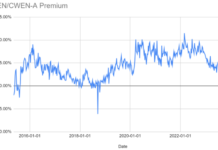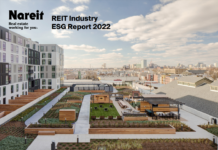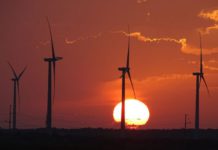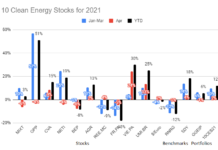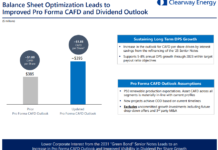by the Climate Bonds Team
Second green bond from TerraForm to finance wind power acquisition, $300m 10yr, 6.125% s/a coupon, BB-/B1
TerraForm Power Operating [TERP], the yieldco spin off from SunEdison [SUNE], has issued a second green bond shortly after tapping its inaugural green bond for a further $150m (making their first green bond a whopping $950m!). The new $300m green bond has 10-year tenor and semi-annual coupon of 6.125%, and was issued in the US private placement market. It is sub-investment grade with a rating of BB- from S&P and B1 from Moody’s. Underwriters for the deal were Bank of America Merrill Lynch, Barclays Capital, Citi, Goldman Sachs, Macquarie, and Morgan Stanley.
Proceeds from the bond will be used mainly to finance the acquisition of 460MW wind power plants from Invenergy, with the remaining proceeds used for other eligible green projects. As with its first green bond, Terraform chose not to get a second review on the green credentials of this bond, presumably because it is a renewable energy business with no brown assets on the books.
Great to see another issuer coming back to the green bond market for more!
TerraForm Global Operating [GLBL] another yieldco subsidiary of the SunEdison group which just completed its IPO also announced a $810m green bond. Proceeds will be used for wind, solar and hydro projects.
First labelled green bond from a Chinese company, Goldwind, is launched in the Hong Kong market,$300m, 3yr, 2.5% s/a coupon, A1 (credit enhanced)
As we already mentioned in a special blog last week, Xinjang Goldwind Science and Technology [2208.HK] is the first Chinese corporate to issue a labelled green bond (though technically speaking, the bond was issued by its wholly owned Hong Kong-based subsidiary). The $300m green bond issued in the international dollar market was a massive success with an orderbook of $1.4 billion! The bond has a 3-year tenor and semi-annual coupon of 2.5%, and credit enhancement by the Bank of China (Macau) brought it up to an A1 credit rating. The lead underwriters for the deal are Bank of China, Deutsche Bank and Societe Generale.
We’re happy to see that Goldwind got DNV GL to do a second review of the green bond, giving investors confidence in the first green bond issuance from a new country. (Although, the domestic Chinese green bond market will be governed by official guidelines for what is green rather than the second opinion model).
Now, it’s worth highlighting that the Goldwind green bond does not follow the use of proceeds model most commonly seen in the green bond market where the proceeds of the bond sale are earmarked to finance specific eligible projects. Instead, Goldwind’s green bond is a general-purpose bond that allows proceeds to be used for any expenditure by the company. The reason investors can accept this different structure is that the green bond is issued by a pure-play company (meaning over 95% of revenues are from climate-aligned assets). This gives investors comfort that proceeds will be used for green – in Goldwind’s case, wind power plants and wind turbine manufacturing assets. It is the same model used in Danish corporate wind manufacturer Vestas’ [VWDRY] green bond earlier this year.
We’re all for pure-play issuers labeling their bonds as green to improve discoverability for investors. But we were a bit surprised that there are no plans for additional reporting on the actual use of proceeds of Goldwind’s green bond, as in theory the company could use proceeds to finance any project – green or not so green. Of course, since Goldwind’s a pure-play wind developer, it’s almost certain that the company will use the proceeds on fully climate-aligned wind projects. But it would be good to see reporting on this to provide certainty for investors.
There are many firsts to come for Chinese green bonds this year – in particular we are waiting for the first green bonds in the overseas RMB and domestic Chinese bond markets that has a seal of approval from the central bank and financial bond regulator, PBoC. We’re expecting these to be coming to market later in 2015.
The Climate Bonds Team includes Sean Kidney, Tess Olsen-Rong, Beate Sonerud, and Justine Leigh-Bell.
The Climate Bonds Initiative is an “investor-focused” not-for-profit promoting long-term debt models to fund a rapid, global transition to a low-carbon economy.

